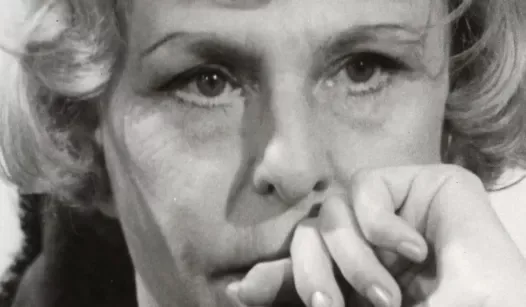Leni Riefenstahl, a name that evokes a complex blend of admiration and controversy, continues to spark discussions about the relationship between art and politics. Her work, particularly during the Nazi regime, raises critical questions about the role of the artist in society and the moral implications of their creations.
Riefenstahl is best known for her groundbreaking films, such as “Triumph of the Will” and “Olympia,” which not only showcased her technical prowess but also served as powerful propaganda tools for the Nazi party. These films blurred the lines between artistic expression and political agenda, leading many to ponder the ethical responsibilities of filmmakers and artists in general.
At the heart of the debate surrounding Riefenstahl’s work is the concept of artistic heroism. This idea suggests that artists have the ability to transcend their circumstances and influence society through their creations. However, when art is used to promote harmful ideologies, the question arises: can an artist still be considered heroic if their work contributes to a destructive political narrative?
Riefenstahl’s films are often hailed for their innovative techniques and aesthetic beauty. She employed groundbreaking cinematography, editing, and sound design that set new standards in the film industry. Yet, the content of her work cannot be divorced from the context in which it was created. The glorification of the Nazi regime and its leaders in her films raises uncomfortable questions about complicity and the moral weight of artistic choices.
In contemporary discussions about politics and art, Riefenstahl’s legacy serves as a cautionary tale. It reminds us that the power of cinema extends beyond entertainment; it can shape public opinion, influence political discourse, and even alter the course of history. This realization compels artists and filmmakers to reflect on their responsibilities and the potential impact of their work.
As political polarization continues to deepen in the United States, the intersection of art and politics remains a relevant topic. Artists today grapple with the challenge of addressing social and political issues while maintaining their creative integrity. The legacy of figures like Riefenstahl serves as a reminder that artistic expression carries weight and can either uplift or undermine societal values.
In conclusion, Leni Riefenstahl’s work exemplifies the intricate relationship between cinema and politics. Her films provoke essential questions about the nature of artistic heroism and the ethical responsibilities of artists. As we navigate the complexities of the modern political landscape, it is crucial to engage in thoughtful discourse about the role of art in shaping our understanding of the world around us.
